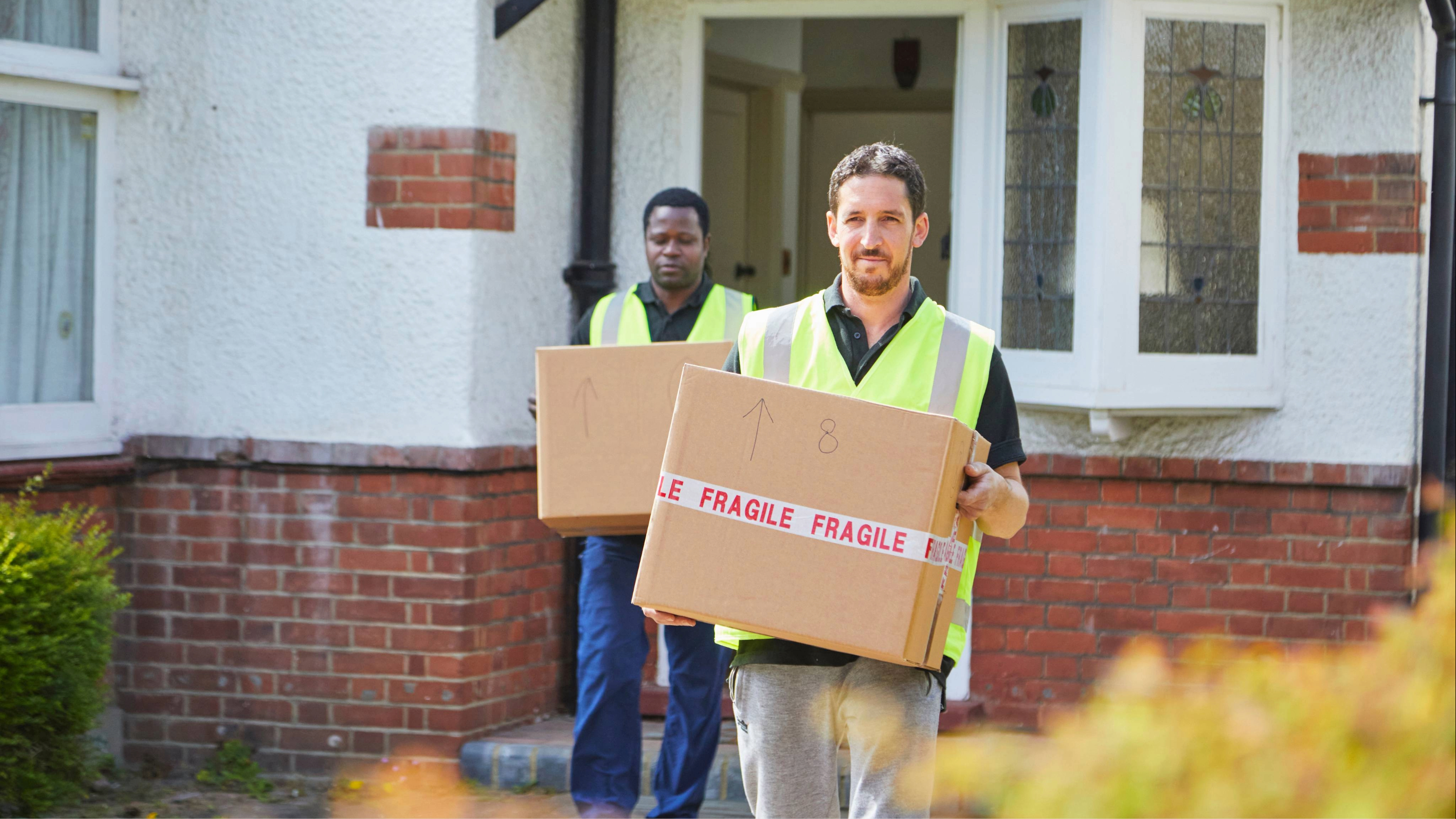Best Cities for Homebuyers 55 and Older
San Antonio, Texas was ranked the best city for people 55 and older in a new survey, followed by Houston and Dallas. Charlotte, North Carolina rounded out the top ten.


Profit and prosper with the best of Kiplinger's advice on investing, taxes, retirement, personal finance and much more. Delivered daily. Enter your email in the box and click Sign Me Up.
You are now subscribed
Your newsletter sign-up was successful
Want to add more newsletters?

Delivered daily
Kiplinger Today
Profit and prosper with the best of Kiplinger's advice on investing, taxes, retirement, personal finance and much more delivered daily. Smart money moves start here.

Sent five days a week
Kiplinger A Step Ahead
Get practical help to make better financial decisions in your everyday life, from spending to savings on top deals.

Delivered daily
Kiplinger Closing Bell
Get today's biggest financial and investing headlines delivered to your inbox every day the U.S. stock market is open.

Sent twice a week
Kiplinger Adviser Intel
Financial pros across the country share best practices and fresh tactics to preserve and grow your wealth.

Delivered weekly
Kiplinger Tax Tips
Trim your federal and state tax bills with practical tax-planning and tax-cutting strategies.

Sent twice a week
Kiplinger Retirement Tips
Your twice-a-week guide to planning and enjoying a financially secure and richly rewarding retirement

Sent bimonthly.
Kiplinger Adviser Angle
Insights for advisers, wealth managers and other financial professionals.

Sent twice a week
Kiplinger Investing Weekly
Your twice-a-week roundup of promising stocks, funds, companies and industries you should consider, ones you should avoid, and why.

Sent weekly for six weeks
Kiplinger Invest for Retirement
Your step-by-step six-part series on how to invest for retirement, from devising a successful strategy to exactly which investments to choose.
What are the best cities in the U.S. with aging-friendly homes for people 55 and up? Three major cities in Texas lead the charge, with two other cities in Arizona filling out the top five, according to a recent report from Opendoor.
Online realtor Opendoor looked at the best cities in the U.S. with aging-friendly homes for people 55 and older. An aging-friendly home should, at the minimum, have a bedroom and a full bathroom on the first floor, equaling fewer steps to climb. Yet, less than half (40%) of U.S. homes have even the most basic features to be considered aging-ready.
About 43% of older households say their home doesn’t meet their basic accessibility needs, but only 6% plan to remodel their homes in the near future to improve their accessibility, likely due to high renovation costs.
From just $107.88 $24.99 for Kiplinger Personal Finance
Become a smarter, better informed investor. Subscribe from just $107.88 $24.99, plus get up to 4 Special Issues

Sign up for Kiplinger’s Free Newsletters
Profit and prosper with the best of expert advice on investing, taxes, retirement, personal finance and more - straight to your e-mail.
Profit and prosper with the best of expert advice - straight to your e-mail.
What makes a home age-friendly?
When it comes to catering to the housing needs of people 55 and up, some cities are better than others, particularly if you're looking for a supply of aging-friendly homes and apartments.
But what makes up an aging-friendly home?
According to Aging In Place, an age-friendly home or apartment includes innovative solutions to help older adults live independent lives in their own homes. Just a few features of an age-friendly home include:
- No-step entrances
- Wide doorways
- Rocker style light switches
- Easy-to-read thermostats
- No-slip flooring
- Roll-in shower stalls
- Grab bars
- Lower kitchen cabinets
- One-level living
- Few steps
A tight spot for seniors
About 4.1 million Baby Boomers will turn 65 this year and every year through 2027. As of February 2024, they own around 32 million homes in the U.S. And, although the majority of these homeowners prefer to downsize in the next few years, according to the Opendoor report, they feel stuck in their current homes due to rising home prices, a competitive market or an unwillingness to give up their existing low mortgage rate.
Many Boomers whose homes have surged in value over the past several years might also face tremendous capital gains tax bills when they sell, and smaller houses or apartments in the neighborhoods they’ve come to love are scarce.
So, to help Boomers find a home that fits their lifestyle and needs, OpenDoor uncovered the 10 best cities in the U.S. with aging-friendly homes.
Top 10 Cities
Retirees move for a variety of reasons. Sometimes, it means being closer to the grandkids. Maybe walking trails and sidewalks are important features. Good healthcare facilities, reliable transportation, and warm sunny days may top the list.
Overall, these top ten cities have a high percentage of homes available with features beneficial to an aging community, including single-story homes, newly built homes, and homes with accessible layouts. Three cities in Texas claimed the first three spots in the report, with San Antonio, Houston and Dallas leading the charge, respectively.
1. San Antonio, TX
About 57% of homes in San Antonio are single-story, with a bedroom and bathroom on the first floor, and 62% are newly built, offering Boomers a place to live without the cost of renovations in the near future.
San Antonio also offers an affordable cost of living that is 8% lower than the national average, no state income tax, affordable housing, warm weather, many popular 55+ communities and military-friendly retirement amenities, such as VA facilities.
San Antonio is also a growing community with stellar healthcare and convenient transportation. San Antonio River Walk is a network of pedestrian walkways along the banks of the San Antonio River that offers seniors access to restaurants, shops and bars. One of the more popular activities is boat rides along an inlet canal.
2. Houston, TX
Houston is a growing community with a diverse population. There are about 4,500 listings on Realtor.com right now for single-story homes with accessible layouts. The median home price in Houston is just about $265,000, according to Zillow.
With more than 2.2 million residents, the city has top-notch restaurants, eclectic neighborhoods, a thriving professional arts and museum scene and dozens of age-appropriate activities for meeting people.
There is no state income tax, housing is affordable and there are additional property tax exemptions on top of Texas-wide exemptions. Houston has some of the best healthcare facilities in the country, a mild winter climate and many active adult communities throughout the metro area.
3. Dallas, TX
The population of Dallas, Texas is currently 1,302,753, with active housing listings topping 25,000. About 10% or 2,500 of those listings are single-story homes and apartments. The median price of a home is just over $306,000, down about 5% from this time last year..
Many of Dallas' neighborhoods are 55+ communities where meeting people and making friends comes naturally. In fact, people over 60 years old make up 16% of the Dallas population. Dallas boasts high-quality healthcare facilities, a warm climate, a low cost-of-living, and no state income or inheritance tax. Social Security retirement benefits and all other types of retirement income are also tax-free in Texas.
To get around, seniors have access to more public transit than in many Texas cities. There is a high concentration of arts and culture events, abundant outdoor recreation options and a variety of dining and shopping centers.
4. Phoenix, AZ
The Phoenix area has become a destination for retirees. In fact, Mesa, just outside the Phoenix metro area, saw a net influx of 4,453 people last year, over 50% more than any other city. At the state level, Arizona saw the second-highest influx of retirees, at 23,515. Largely due to the high cost of cooling, most homes in the Phoenix area are single-story.
5. Tucson, AZ
Like Phoenix, Tucson is growing in population. However, because of its much larger size, you’ll likely find a greater choice of housing in Phoenix, which can mean slightly lower home prices. Still, there are plenty of single-story homes to choose from in Tucson.
6. Jacksonville, FL
Retirees flock to Florida for its warmer weather and sandy beaches. In fact, of the 338,000 Americans who relocated for retirement last year, Florida took the top spot. However, the cost of living in Florida has risen nearly 9% from a year ago, and getting insurance on a new home is expensive.
7. Charleston, SC
Charleston has a small-town appeal with good weather for most of the year and a pleasantly slow pace of living. However, if you’re planning to move to Charleston, you should know that the average cost of a home is around $520,000 (a 30% increase from last year alone). Also, flood insurance (which varies) is expensive.
8. Orlando, FL
Like Jacksonville, retirees moving to Orlando can expect sunshine and warm weather year-round. Property taxes and sales tax are only 7%. Groceries (food) are exempt from sales tax. However, the cost of living in Orlando has skyrocketed over the past two years, with a median home price of $380,216, according to Zillow.
9. Las Vegas, NV
In 2023, 18.8% of all people relocating to Las Vegas did so for retirement, with 62.6% over age 65. Currently, Zillow lists about 3,500 single-family homes for sale in Las Vegas. Many of those homes are newly built due to the influx of people moving to the area. However, home prices have skyrocketed over the past year (up 5.8%) with the medium price of a home in Vegas at $423,942, according to Zillow.
10. Charlotte, NC
Charlotte is one of the fastest-growing cities in the U.S. According to BestPlaces.net, Charlotte’s cost of living is 1.1% lower than the U.S. average, and the median home price is $393,554, making it an affordable option for retirees. However, since hurricane Helene devastated much of the area in and around Charlotte, the housing market has taken a beating, so patience will be key when relocating to this area in the near future.
Priorities when moving
Many factors play into Baby Boomers' decision to move, which may include:
- Getting the highest price (80%)
- Selling quickly (55%)
- Not having to do repairs (49%)
- Not haggling with buyers (34%)
- Simplicity of the sale (30%)
Are you a Boomer considering moving but still unsure about one of the top ten aging-friendly cities listed here? Before making a decision, check out the Best Places to Retire in the U.S. and the Worst Places to Retire in the U.S.
Related Content
Profit and prosper with the best of Kiplinger's advice on investing, taxes, retirement, personal finance and much more. Delivered daily. Enter your email in the box and click Sign Me Up.

For the past 18+ years, Kathryn has highlighted the humanity in personal finance by shaping stories that identify the opportunities and obstacles in managing a person's finances. All the same, she’ll jump on other equally important topics if needed. Kathryn graduated with a degree in Journalism and lives in Duluth, Minnesota. She joined Kiplinger in 2023 as a contributor.
-
 Ask the Tax Editor: Federal Income Tax Deductions
Ask the Tax Editor: Federal Income Tax DeductionsAsk the Editor In this week's Ask the Editor Q&A, Joy Taylor answers questions on federal income tax deductions
-
 States With No-Fault Car Insurance Laws (and How No-Fault Car Insurance Works)
States With No-Fault Car Insurance Laws (and How No-Fault Car Insurance Works)A breakdown of the confusing rules around no-fault car insurance in every state where it exists.
-
 7 Frugal Habits to Keep Even When You're Rich
7 Frugal Habits to Keep Even When You're RichSome frugal habits are worth it, no matter what tax bracket you're in.
-
 We're 62 With $1.4 Million. I Want to Sell Our Beach House to Retire Now, But My Wife Wants to Keep It and Work Until 70.
We're 62 With $1.4 Million. I Want to Sell Our Beach House to Retire Now, But My Wife Wants to Keep It and Work Until 70.I want to sell the $610K vacation home and retire now, but my wife envisions a beach retirement in 8 years. We asked financial advisers to weigh in.
-
 We Inherited $250K: I Want a Second Home, but My Wife Wants to Save for Our Kids' College.
We Inherited $250K: I Want a Second Home, but My Wife Wants to Save for Our Kids' College.He wants a vacation home, but she wants a 529 plan for the kids. Who's right? The experts weigh in.
-
 2026's Tax Trifecta: The Rural OZ Bonus and Your Month-by-Month Execution Calendar
2026's Tax Trifecta: The Rural OZ Bonus and Your Month-by-Month Execution CalendarReal estate investors can triple their tax step-up with rural opportunity zones this year. This month-by-month action plan will ensure you meet the deadlines.
-
 Have You Aligned Your Tax Strategy With These 5 OBBBA Changes?
Have You Aligned Your Tax Strategy With These 5 OBBBA Changes?Individuals and businesses should work closely with their financial advisers to refine tax strategies this season in light of these five OBBBA changes.
-
 Is the Housing Market's 'Lock-In Effect' Finally Starting to Ease?
Is the Housing Market's 'Lock-In Effect' Finally Starting to Ease?As mortgage rates stabilize and fewer owners hold ultra-low loans, the lock-in effect may be losing its grip.
-
 How to Find the Best International Moving Company for Your Big Move Abroad (and Avoid Costly Mistakes)
How to Find the Best International Moving Company for Your Big Move Abroad (and Avoid Costly Mistakes)It's best to use an international moving company to protect your belongings and budget when relocating to another country. Here's how to find a reputable firm.
-
 What to Ask a Contractor Before a Renovation
What to Ask a Contractor Before a RenovationHomeowners should ask these essential questions before hiring a contractor to avoid surprises, protect their investment and keep projects on time and on budget.
-
 I'm 61 and Want a Divorce, but I Worry About My Finances. Should We Live Separately but Stay Married?
I'm 61 and Want a Divorce, but I Worry About My Finances. Should We Live Separately but Stay Married?We asked Certified Divorce Financial Analysts for advice.